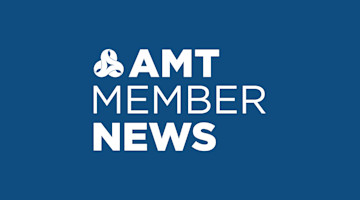The fiscal year 2024 began on October 1 for the federal government, and it is off to a rocky start. After repeated attempts to pass a Republican-backed funding package failed, then-House Speaker Kevin McCarthy (R-CA) worked with Democrats to enact a short-term bill to keep the government open. Unfortunately, the bipartisanship ended there, and no Democrat voted to keep McCarthy in his job when a small group in his own party succeeded in ousting him as speaker. The drama in the House will impact tax and spending legislation later this year.
The 45-day stopgap spending measure continues funding programs and agencies at FY2023 levels. In addition, it includes $16 billion in federal disaster relief and a three-month reauthorization of the Federal Aviation Administration. The FAA charter was set to expire at midnight on September 30. Controversial provisions such as aid to Ukraine, enhanced border security measures, and deep agency spending cuts were left out. Now, Congress is again scrambling to pass department appropriation bills as it deals with changes in House leadership and the war between Israel and Hamas along with other domestic and geopolitical issues.
Business and manufacturing organizations, including AMT, are working with a bipartisan group in Congress to temporarily reverse changes enacted as part of the Tax Cuts and Jobs Act (TCJA) that hamper competitiveness, such as amortization of R&D costs and the expiration of 100% bonus depreciation, as part of the funding package. A protracted fight on spending matters complicates these efforts. Eyes should also look to the horizon as other major tax provisions in the TCJA sunset at the end of 2025.
On the corporate side, the tax rate reduction is permanent at 21%. However, individual income tax brackets revert to pre-TCJA levels beginning in 2026 when the top individual returns to 39.6 percent from the current 37 percent. This tax increase will impact many manufacturing companies that file taxes as pass-through entities and is compounded by the elimination of the 20% qualified business income deduction (QBI). Alternative minimum tax (AMT) exemption amounts decrease as well.
Another major hit to small and medium-sized family-owned businesses is a dramatic reduction in the estate tax exemption. This year, individuals can transfer up to $12.92 million ($25.84 million for married couples) without triggering federal estate taxes. Without legislative action, the historically high exemption amount is reduced by about half for the 2026 tax year.
Bonus depreciation is zero as of 2027, but Section 179 increases are permanent and indexed for inflation. The limit for 2023 is $1,160,000, and the total equipment purchase limit is $2,890,000.
The sooner Congress resolves this transition, the less impact on longer-term planning. The hope is that talks on the spending bill go smoothly and that there is an opportunity to add short-term tax relief. If you are in contact with your federal elected officials, let them know they must act to extend R&D and equipment expensing this year. Expect action on a broader tax bill next year later next year and after the presidential election.






